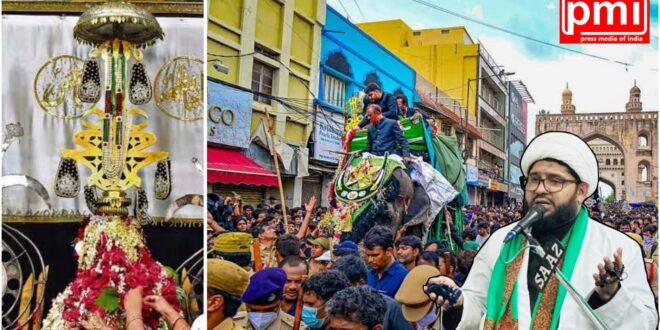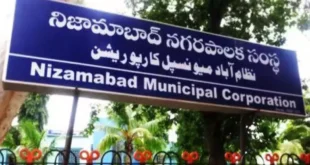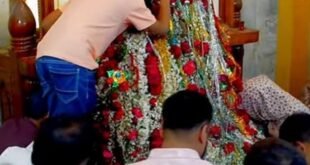Controversy Over Bibi’s Alam Procession Elephant
Silence of clerics and zakireen raises questions
Fresh Debate on Khooni Matam
Maulana Firashta’s remarks spark concern and division in the community
Delay in Elephant’s Arrival – legal and administrative formalities
Hyderabad, August 30 (Ali Abbas-PMI): A recent statement by cleric Maulana Ali Haider Firshta regarding the use of elephants for the traditional Bibi ka Alam procession has triggered strong resentment within the Shia community against him. His contrasting remarks regarding the ease with which elephants are arranged for other religious communities, while difficulties persist in securing one for Bibi ka Alam—have been termed untimely, irresponsible, and misleading by a large section of Shia mourners.
Educated youths and community intellectuals have argued that, if analyzed carefully, the essence of Maulana Firshta’s speech indirectly points towards opposition to the practice of self-flagellation (Khooni Matam). According to them, his comments appear to subtly pave the way for shifting the Bibi ka Alam procession onto alternative means like DCM truck, thereby aligning with those who oppose bloodletting rituals during Muharram.
Religious scholars emphasize that knowledge alone does not define a true scholar; it is the practice of that knowledge in accordance with Sharia that matters.
It is also noteworthy that Maulana Firshta is not the first cleric to raise objections to Khooni Matam. Over the years, several clerics have either opposed it outright, endorsed it, or taken a more flexible stance. A couplet often quoted in this context highlights the deep divide:
“As blood flows from chests, it speaks louder than words,
If Fatwas declare war, then mourning stands prepared.”
The controversy has also raised questions within the community:
- Did the organizers specifically request Maulana Firshta to address this subject in his sermon?
- Was the speech aimed at pleasing certain quarters or creating a pretext for changes in tradition?
- Why raise the elephant issue alongside Khooni Matam at such a sensitive time?
Historically, large-scale mourning rituals—including Khooni Matam—have faced opposition in every era, and the debate remains unresolved. In the Indian subcontinent, Muharram sermons often revisit recurring questions such as “Is prayer superior to mourning assemblies?” or “Is bloodletting in mourning permissible or forbidden?”—but a conclusive answer has never been provided.
For now, the silence of Hyderabad’s leading clerics and preachers on Maulana Firshta’s statement remains both noticeable and thought-provoking.
Clerics, Zakireen, and mourning groups are urged not to rely on silence over this sensitive issue. They must express their stance immediately; otherwise, their silence will be seen as a tactical approval or protection of Maulana Ali Haider Firshta’s views.
It is also important to clarify that the delay in bringing the elephant for the Alame Bibi procession had nothing to do with Khooni Matam. The delay occurred only due to legal and administrative formalities, as official procedures naturally take time. Thankfully, the elephant for the Alame Bibi procession did arrive on time.(pressmediaofindia.com)
 Pressmediaofindia
Pressmediaofindia




